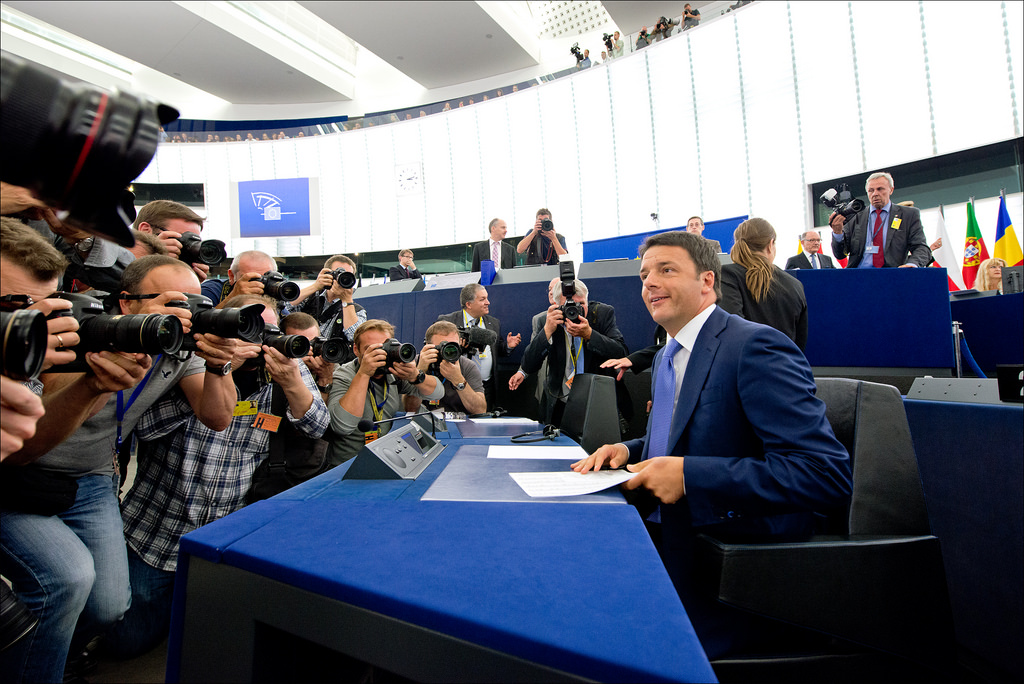On Monday, 4 May, the Italian Parliament voted on legislation aimed at reforming the country’s electoral system. The overhaul, proposed by Prime Minister Matteo Renzi, seeks to put an end to a fragmented political scene that has ushered in four different governments since the beginning of this decade.
A jubilant ruling coalition welcomed the Parliament’s approval of the bill by a vote of 334 to 61. Soon after the secret ballot came to a close and the votes were counted, an enraptured Renzi tweeted: “Commitment kept, promise fulfilled.” Cheers of victory were heard from other high-ranking members of the governing coalition. The Italian press agency (ANSA) quoted Reform Minister Elena Boschi as saying that: “Italy needs those who aren’t naysayers. Onwards, with humility and courage” and “Mission accomplished. The government has maintained its commitment. We promised and we delivered.”
Despite the roaring victory march and Interior Minister Angelino Alfano’s assurance that “we have approved a good law that provides stability and representation,” criticism of the reform package came from both sides of the aisle. Critics fear that the new law would only help consolidate the Prime Minister’s hold on power with no benefit to the Italian democracy.
“Italy needs those who aren’t naysayers. Onwards, with humility and courage,” remarked Reform Minister Elena Boschi
The bill, which for over a year has been debated on the floor of both chambers of Parliament, turned into a very divisive piece of legislation once the negotiations between the ruling Democratic Party (PD) and opposition lawmakers fell through. The Italicum, as the new law is being dubbed, saw the initial backing of ex-PM Silvio Berlusconi. That quickly changed when Berlusconi’s chances of becoming the next President of Italy were quashed by the election of Sergio Mattarella.
With almost no opposition lawmaker taking part in Monday’s vote, the dissenting PD minority voiced concerns that once the new law comes into force a year from now, power will be tipped away from the Parliament in favour of the Executive. A similar warning was echoed by opposition leaders long before voting day.
The new electoral law keeps the current system of proportional representation, while offering a 15% bonus, in the form of additional seats, to the party garnering at least 40% of the vote. Therefore, such a party would receive at least 340 of the 630 available seats in the Chamber of Deputies. In case no party wins 40% of the vote, a run-off election will decide which party receives the bonus. A threshold of 3% of all votes cast has also been set, excluding smaller parties from Parliament. In addition, party bosses will decide who fills the top slots on the party’s list of candidates, thus giving them more leverage over the majority of deputies elected to Parliament.
The law will take effect in July 2016. In the meantime, Prime Minister Renzi plans to reduce in size and limit the power of the upper house of Parliament. The transformation of the Senate into a non-elected body was initially proposed in a draft bill submitted to Parliament in the spring of 2014. That, in turn, will require a referendum to approve the relevant constitutional amendments. Together with electoral reform, this is regarded as a move to bolster an embattled political system, which has seen its fair share of scandals over the last three decades.


